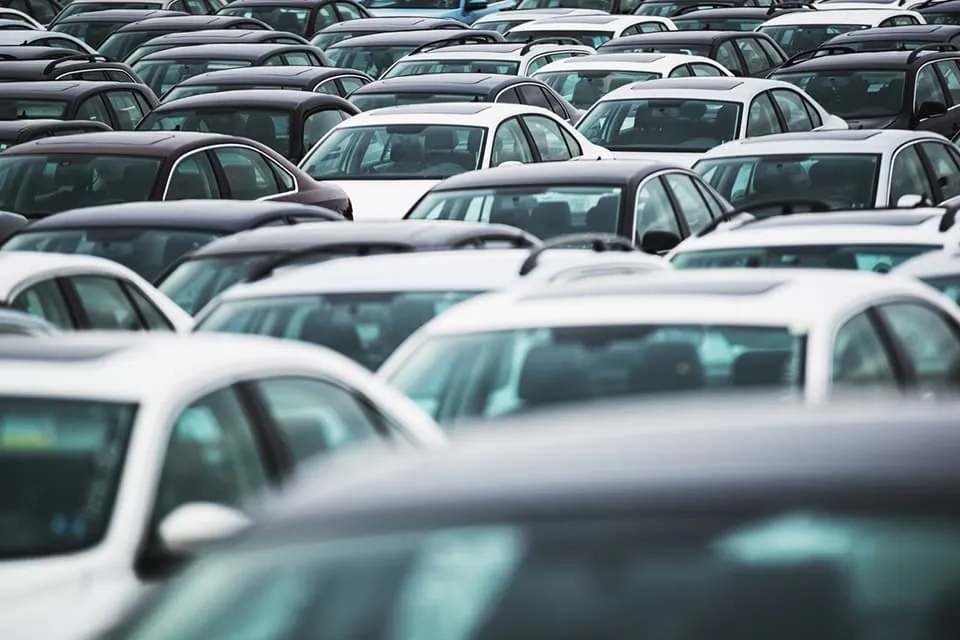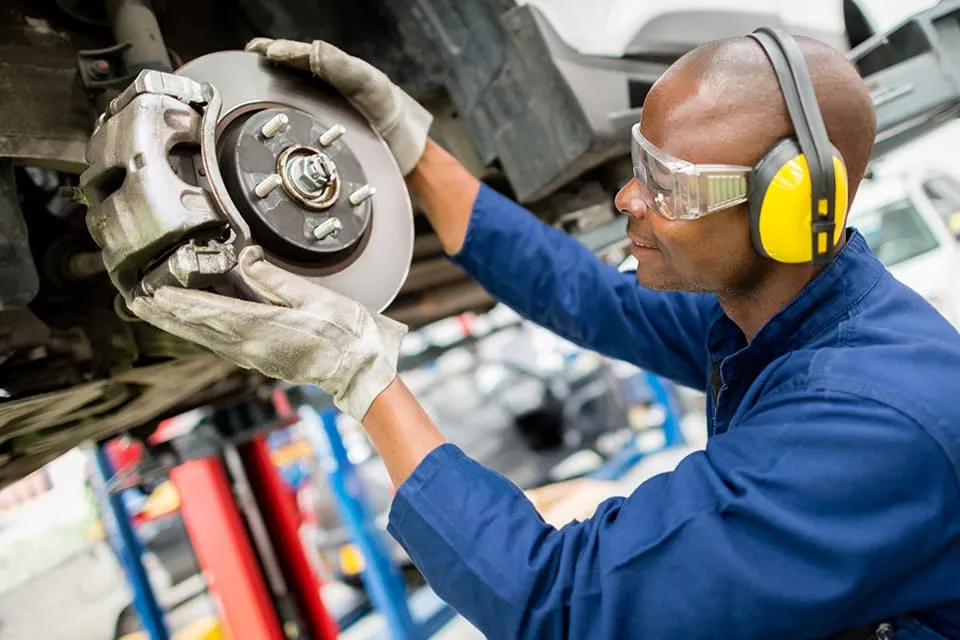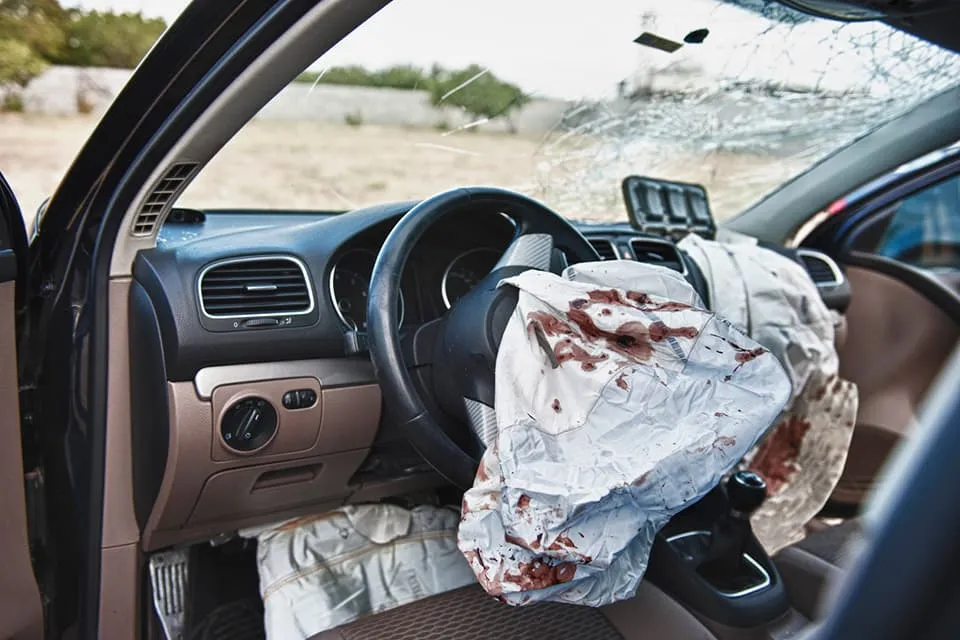What Is a Car Recall?

Vehicle recalls occur when the NHTSA (National Highway Traffic Safety Administration) or the automobile manufacturer discovers a major safety issue and recalls the vehicle for repair.
NHTSA is responsible for making sure vehicles, car seats, and other vehicle-related products are safe for use. If you receive a car recall , you should bring it to your local dealership to have the problem resolved as soon as possible. Vehicle recalls may cover cars, trucks, SUVs, vans, buses, commercial vehicles, and even motorcycles.
Sometimes you will receive news of a recall in the mail, or you'll see something about it on the news, but many times you will have to look the information up yourself.
How Do Car Recalls Work?
If a car manufacturer or the NHTSA determines that a vehicle has a safety defect or does not meet current safety standards, they will issue a recall. Recalls may include things like tires, airbags, and even child safety seats.
Once a vehicle recall is filed the NHTSA gives the manufacturer 60 days to notify customers of the recall. They send out a vehicle recall notice by first-class mail. The letter will instruct vehicle owners about what to do and how to get the recall fixed. It may also include a time limit to get the recall repaired for free. Vehicle owners can contact their local dealerships to schedule the repair work. When they bring the car in, they need to show the mechanic the notice, and they will receive the repair at no cost.
When contacting the dealership, they will first ask for the customer's VIN. Not all vehicles of a particular make and model will qualify for a recall. Some may be exempt.
Most Common Examples of Vehicle Safety Recalls

Vehicle recalls do not necessarily pertain to the entire car or truck. Sometimes they refer to faulty equipment or small parts which could cause an accident if they fail during use. Some common examples of safety recalls are:
- A faulty steering column could lock up and prevent the driver from controlling the car.
- Wiring issue that presents a fire hazard.
- Leaky fuel systems that could start a fire.
- Sticky accelerators that could cause an accident.
- Dangerous airbags that could injure passengers upon impact.
- Car jacks that do not support the weight of the car could collapse, causing injury or death.
- Seat Belts that do not work correctly.
- Headlights that do not properly light the way.
- Faulty windshield wipers that malfunction and could cause injury or an accident.
- Broken cooling fans that could allow parts to overheat and burn out.
- Braking systems that do not stop the vehicle and could cause an accident.
- Other parts of the vehicle that could break, wear unnaturally, or malfunction, causing harm.
The NHTSA classifies recalls into two categories: Safety-Related or Non-Safety-Related vehicle recalls. Some examples of non-safety-related recalls might include excessive oil consumption, malfunctioning air-conditioning or radios, poor paint quality, excessive rust, and premature wear and tear.
Keep in mind that some car recalls have a time limit of 10-15 years, and if you don't have it repaired within that time frame, you may have to pay for the repair out-of-pocket.
Do You Have To Pay For Recall Repars?
If your vehicle has a recall on it, you don't have to worry about covering the costs of the repair so long as it is safety related. According to an NHTSA investigation, your vehicle wasn't made properly, and it's the responsibility of the manufacturer to resolve the issue. That means you can bring your vehicle to a dealership and have the issue addressed for free. If you know about a recall, call your local dealership and schedule an appointment to address the recall.
Bring your vehicle to the dealership at your appointment time, and the safety recall repair will be completed for you. Automakers are required to resolve any safety recall issues on your vehicle. If anyone asks for money for a car recall repair related to safety, do not pay for it. If you already made the repair before the recall came out, you can get reimbursed for it from most dealerships.
Top 10 Biggest Car Recalls In History

There have been numerous costly recalls over time. Some of the biggest vehicle recalls of all time are listed below:
- Ford (1981) - 21 million vehicles - The issue stemmed from a faulty transmission where a driver would put the car in park, and it would shift into reverse, causing more than 6,000 accidents, 1710 injuries, and 98 deaths.
- Ford (1999-2009) - 15 million vehicles - Faulty speed control devices would leak fluid and cause a fire under the hood of the car. This issue forced multiple recalls.
- Toyota (2009-2010) - 9 million vehicles - The Toyota scandal was a big one when faulty gas pedals got stuck accelerating, causing a runaway vehicle situation and danger. At first, Toyota blamed all-weather floor mats but finally recalled the gas pedal assembly to fix all affected vehicles.
- Ford (1996) - 7.9 million vehicles - In this vehicle recall, ignition switches were short-circuiting, causing fires in the steering column. Some of these fires started when the cars weren't even in use, in parking lots and people's garages. This car recall affected Thunderbird convertibles, F-350 trucks, and many other models.
- General Motors (1971) - 7 million vehicles - A faulty engine mount caused motors to lift and increase the throttle of the engine, jammed accelerators, and loss of power steering and brakes.
- Toyota (2007-2010) - 5.7 million vehicles - This time, Toyota recalled its all-weather floor mats that were getting caught under the accelerator pedal and causing it to become stuck. Eighty-nine people died because of accelerator problems with Toyota vehicles between 2007-1010.
- Honda (1995) - 3.7 million vehicles - The recall was for a defective seat belt buckle that could break, release, or wear abnormally then fail in the event of a collision. It affected the Accord, Prelude, Civic, and even Acura lines. The seat belts were made by Takata Corp. (the infamous manufacturer of defective airbags).
- General Motors (1973) - 3.7 million vehicles - In 1973, GM had to recall almost 4 million cars from their Pontiac, Buick, Chevrolet, and Oldsmobile lines due to stones getting stuck in the engine compartment and affecting the steering. GM recalled the vehicles and installed a gravel shield over the steering column in the engine.
- Volkswagen (1972) - 3.7 million vehicles - Volkswagen issued a recall in 1972 affecting VW vehicles from 1949 to 1969. The issue stemmed from a wiper screw that would come loose, causing unsafe conditions for the driver in rain or snow. The NHTSA received numerous complaints about the issue before a recall was initiated. However, in a statement to the press, Volkswagen determined that it was not a safety issue and vehicle owners should pay for repairs.
- Audi - (1970s - 1980s) - 400,000 vehicles - Although not one of the largest vehicle recalls, many people will remember this one. The cars would suddenly accelerate without warning. Audi processed three massive recalls in 1982, 1983, and 1987, stating they fixed the problem each time, but it continued. Due to the small market share, the number of affected vehicles turned it into a substantial vehicle recall that made headlines numerous times.
Frequently Asked Questions About Vehicle Recalls
How Do Car Recalls Work?
A vehicle recall occurs when the auto manufacturer or NHTSA discovers a safety issue with the car and recalls it for repairs. When this happens, customers are notified by mail and can bring their vehicle to a local dealership to have the repair performed at no charge.
What Are The Two Types of Vehicle Recalls?
The two types of vehicle recalls are safety-related and non-safety-related. The most common is safety-related, and they are more emergent than non-safety-related.
Is It Okay to Buy a Car With a Recall?
It depends. You can buy a car with an open recall if you plan on having it fixed. However, if the vehicle is old and the recall time window has passed, you may have to pay for the repairs yourself. Driving a car with an open recall could pose danger to yourself and others.
Do Recalls Expire?
Typically, the NHTSA gives customers between 10-15 years to have a recall processed. After that, you can still bring it in for repairs but will have to pay out-of-pocket.
Where Do I Find My VIN to Check for a Recall?
You can find your VIN on the driver-side dash, inside the driver's side door, on the engine block, and sometimes on the vehicle's side panel.
How Can I Report a Safety Issue to the NHTSA?
The NHTSA collects safety issue reports which often result in vehicle recalls. To report a safety issue that you become aware of, visit NHTSA and fill out the online form, or you can call it in at 888-327-4236 Monday-Friday 8 a.m. until 8 p.m.
What Is a Car Recall Check?
A car recall check is an online tool where you can find out if your vehicle is subject to a recall and requires repair.
FREE Vehicle Search
- Accidents
- Problem Checks
- Title Records
- Recalls
- Values
- Specs
-
InfoPay, Inc. (dba GoodCar) is an Approved NMVTIS Data Provider
-
-






























